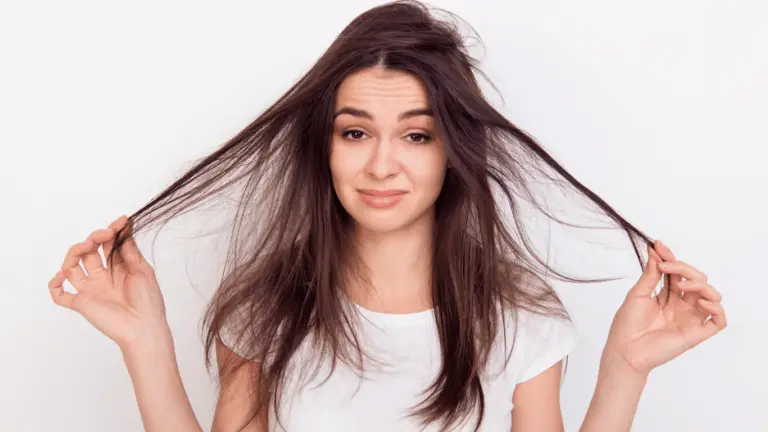Many people use chemical hair relaxers to get smooth, manageable hair. These hair solutions claim to turn frizzy or curly hair into smooth strands, but what is going on with these ostensibly miraculous treatments?
Although the illusion of simple style is alluring, hair relaxers can have significant negative impacts on your health that are frequently disregarded. Comprehending the hazards connected to these products is essential to make well-informed decisions regarding your hair care regimen.
This post will examine the harmful health impacts of hair relaxers, including chemical burns, irritated scalps, and more.
Comprehending Hair Relaxers
Chemical treatments called hair relaxers are used to change hair structure; this usually involves severing protein connections to straighten curly hair textures. These products are available in several formulations, such as ammonium thioglycolate relaxers, no-lye (calcium hydroxide or guanidine hydroxide), and lye-based (sodium hydroxide).
They enter the hair shaft and rupture the organic connections that give hair its form. This enables it to be reformed into a more angular shape. Hair relaxers help create straight, silky hair, but if not used correctly, they contain strong chemicals that can seriously harm hair.
Chemical Burns and Irritation of the Scalp
Vital alkaline compounds included in hair relaxers have the potential to cause chemical burns and scalp irritation, according to Scientific American. The concentration of the relaxer and the individual’s susceptibility to the burns can determine the extent of the damage, which can range from minor redness and pain to scarring.
Burns and irritation of the scalp can also result from misusing relaxers or leaving them on too long. You must carefully follow the manufacturer’s recommendations and do a patch test before applying the relaxer to your scalp. By doing this, the chance of negative responses can be reduced.
Breakage and Damage to Hair
If used often, hair relaxers can weaken the hair shaft and cause breakage and damage. Relaxer chemicals can deplete hair’s natural oils and proteins, making it dry, brittle, and more prone to split ends.
Damage to these regions, especially around the hairline and in the places where the relaxer is administered most frequently, can lead to thinning hair and hair loss. Regular deep conditioning treatments and allowing the hair to heal between relaxer applications are essential for minimizing damage.
Hazards to One’s Health from Chemical Exposure
Hair relaxer chemicals have been linked to several health hazards. This includes possible carcinogenic consequences, hormone imbalances, and respiratory problems.
The International Agency for Research on Cancer (IARC) has identified formaldehyde, a prevalent chemical in certain relaxers, as a carcinogen. Extended exposure to these substances, whether via skin absorption or inhalation, can seriously jeopardize one’s general health and well-being.
Impact on the Environment
The improper disposal of chemical-containing rinse water and hair relaxers can contaminate water supplies and destroy aquatic life.
Ammonium thioglycolate and sodium hydroxide are two examples of chemicals that can linger in the environment, contaminate water supplies, or disturb aquatic life.
In addition, the energy and resources needed to manufacture and distribute hair relaxers are substantial, further deteriorating the environment.
An Increase in Lawsuits
According to TorHoerman Law, the number of cases filed against hair relaxer makers has recently increased. In these lawsuits, plaintiffs have claimed injuries such as chemical burns, hair loss, and other unfavorable health consequences, particularly cancer.
The possible risks of hair relaxers and the need for further regulation and consumer education have come to light due to these hair relaxer cases. Drugwatch reports that 8,670 hair straightener complaints have been registered since April 2024.
Several lawsuits are still pending. However, others have led to settlements or judgments against manufacturers. This emphasizes how difficult it is to hold businesses responsible for the safety of their products.
Investigating Safer Substitutes
Many people seek safer alternatives to hair relaxers as they become more aware of the hazards. Beautiful hair may be safely achieved with natural hair care techniques, including moisturizing treatments, protective style, and sulfate-free products.
In addition to lowering the chance of harm and health issues, accepting one’s natural hair texture fosters empowerment and self-acceptance. Furthermore, non-chemical straightening techniques have been developed due to technological breakthroughs.
FAQs
Do relaxers for hair create health issues?
Chemicals in hair relaxers have the potential to aggravate pre-existing medical disorders, including burns, and cause hair breakage and scalp irritation. Unsuitable applications or prolonged usage may raise the possibility of negative consequences.- Are straighteners for hair a cause of cancer?
It is thought that there is little chance of cancer from hair straighteners. Nonetheless, a few new researches raise the possibility of a connection between specific chemicals in hair products and a higher risk of cancer. - Do straighteners cause harm to the environment?
Because hair straighteners require energy to operate, they hurt the environment. Furthermore, generating greenhouse gas emissions and using non-renewable resources during their manufacturing process contribute to environmental damage.
In conclusion, even if hair relaxers give the illusion of glossy, controllable hair, ignoring the harm they cause to the environment and human health is impossible. The disadvantages are many, ranging from possible cancer risks and environmental pollution to scalp irritation and hair damage.
The increased litigation against manufacturers highlights the critical need for more consumer education and regulation in the cosmetics sector. A trend towards safer options, acceptance of natural hair, and promotion of sustainability and health in beauty procedures are all driven by rising consumer knowledge.
Ultimately, the things that matter most regarding hair care are our health and the environment.


